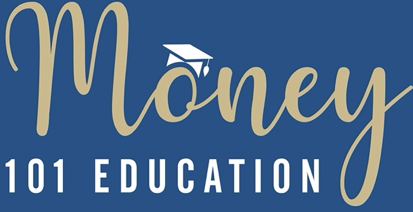
Real Estate Segment Curriculum
Five classes focusing on: factors to consider when purchasing real estate for personal use or investment purposes, key clauses to negotiate in a property contract, understanding closing costs, how to shop and prepare for a successful mortgage application , determining in advance the loan amount loan a bank will approve, impact of interest rates, tax benefits, understanding bank appraisal reports, real estate taxes and insurance.
A BONUS sixth class, which focuses on Commercial Real Estate (CRE) will be offered to engaged participants who are interested in real estate as an investment.
CLASS 1: RENT VS PURCHASE
- What is motivating you to invest in real estate?
- The difference between investing in a primary residence, part-time vacation residence, commercial property for your business, and rental investment property
- Financial resources you need in advance of a purchase
- Comparing primary residence cost or renting to the cost of home ownership – primary
- Will you save on taxes by being a homeowner?
CLASS 2: FINDING A PROPERTY
- Researching properties – the fun part – where to look – using Zillow, Streeteasy, Realtor.com
- Using a broker – pros and cons, understanding commissions, what is FSBO
- Factors to consider in your search – how to research the area
- Difference between a Cooperative and a Condominium
- Understanding the Co-Op or Condo’s financial statements – with Focus on accounts receivable, accounts payable, and reserve funds. Risks if the building relies on rent from commercial tenants.
- Interviews by Co-op and Condo Boards
- Flip taxes and assessments
- Professionals you need on your team (attorney, accountant, insurance broker)
CLASS 3: PURCHASE AGREEMENT
- Purchase Agreement – key clauses (Inspection Dates, Mortgage Contingency Date)
- Timing: Attorney review, Hiring a Home Inspector, Applying for a mortgage
- Understanding Cooperative or Condominium Financial Reports
- Closing fees – what to expect (utility measurements, real estate pro-rating)
- Securing Insurance before closing
- Capital Gains tax and the benefit you receive if your primary residence is sold.
CLASS 4: SHOPPING FOR A MORTGAGE
- Mortgage Brokers vs. Going Direct to a lender
- Pre-Approval and Pre-Qualification letters
- How much can you afford?
- Paperwork to gather in advance of an offer,
- Factors that are important in Shopping for a Mortgage – interest rates, adjustable vs. fixed, term, origination fees/points, other fees,
- What is meant by “escrow,” and how is it calculated
- Prepayment penalties, subordinated debt, balloon payments.
- Review of a closing settlement statement
CLASS 5: BANK APPRAISAL REPORTS, REAL ESTATE TAXES, AND INSURANCE
APPRAISAL REPORT
- What is an appraisal report? And what is the purpose?
- How can an appraisal report affect financing?
- How can a purchaser protect themselves from an appraisal report that does not support the contract price?
REAL ESTATE TAXES
- How does the assessment process affect property taxes?
- How are Real Estate taxes calculated? What is a Mil Rate?
- When are Real Estate Taxes Billed?
- Why does the mortgage company often require payment of property taxes?
- What is an escrow account?
- How often are real estate escrow accounts re-evaluated?
INSURANCE
- What are the different types of real estate insurance policies?
- What insurance is required?
- What is commonly excluded?
- How much coverage do you need?
- How does the deductible effect Premiums?
- What is the difference between Assessed Value and Replacement Value
- What is a Declaration Sheet?
- What Questions Should You Ask Your Insurance Agent?
- Where do you Purchase Flood Insurance?
- What is Liability Coverage?
BONUS CLASS # 6 (by invitation only) COMMERCIAL REAL ESTATE (for investment purposes)
- Students who participate in the above five classes, complete all homework assignments, and are interested in learning about commercial real estate will be invited to a sixth session, which will cover evaluating real estate for investment purposes.
- What is Commercial Real Estate?
- 10 Key factors in evaluating Commercial Investment real estate.
- How commercial mortgages differ from Owner-Occupied properties
- How to calculate NOI (Net Operating Income)
- Understanding IRS Schedule E to report commercial property income and expenses
- What is a Cap Rate? and how does the current interest rate environment affect CRE values?
- What is the difference between Taxable Income and Cash Flow
- Understanding Depreciation expense
- Management – Self-Managed vs. hiring a Property Manager
- Finding tenants- broker vs. doing it yourself, applications, and credit checks
- Security Deposits – new laws limit what can be requested
- Recent changes in the laws which are more protective of tenants
- Eviction challenges
- Selling CRE exit expenses, capital gains tax, depreciation recapture tax, Real Property transfer taxes,
- Alternate ways of becoming a diversified real estate investor (REIT’s)Investment real estate – how commercial mortgages differ
